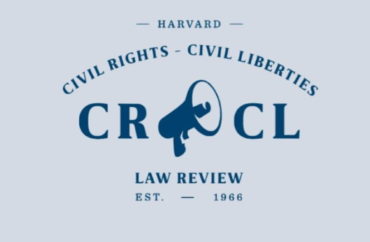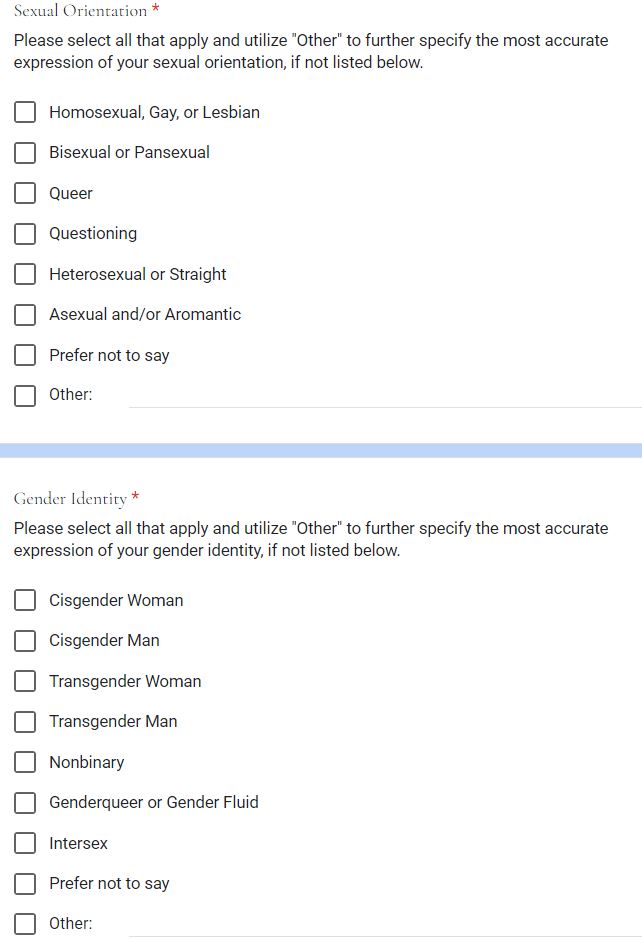
‘When I submit my own articles for publication in law reviews, my work should be judged on merit. I don’t want my chances of being published discounted because of my identities,’ one attorney said
Harvard Law School’s journal Civil Rights and Civil Liberties requires that applicants submit their sexual orientation, gender identity and race for their article submissions to be considered, a relatively new requirement for the publication.
Also required are the applicant’s pronouns, whether they have a disability, and whether they are a first-generation professional or student, according to the “Author Submission Form” Google document for the journal.
Civil Rights and Civil Liberties is a specialty journal published in addition to and separate from Harvard’s main law journal, the Harvard Law Review.
“CR-CL is committed to uplifting authors from a diversity of identities, backgrounds, and experiences,” the editors state atop the form. “The journal is dedicated not only to providing equal opportunities for advancement, but affirmatively promoting voices often sidelined in legal academia.”
“This form is mandatory. CR-CL will not review submissions from authors who have not completed this form,” it added, with the bold lettering in the original.
 Under gender identity, applicants are asked to choose from: cisgender woman, cisgender man, transgender woman, transgender man, nonbinary, genderqueer or gender fluid, intersex, prefer not to say, or other.
Under gender identity, applicants are asked to choose from: cisgender woman, cisgender man, transgender woman, transgender man, nonbinary, genderqueer or gender fluid, intersex, prefer not to say, or other.
Under sexual orientation, applicants are given choices between: homosexual, gay, lesbian bisexual, pansexual, queer, questioning, heterosexual, asexual, aromantic, prefer not to say, or other.
The College Fix reached out to Shing-Shing Cao, editor-in-chief of Civil Rights and Civil Liberties. She did not respond to a Linkedin message seeking comment on how long the identities have been required and what purpose collecting the data serves.
Three law professors on the board of advisors for the specialty journal were contacted and did not respond: Randall Kennedy, Martha Minow, and Mark Tushnet.
The mandatory questionnaire frustrated at least one attorney who sought to submit an article for consideration.
Wisconsin-based attorney Michael Cicchini, a criminal defense lawyer, told The College Fix via email he believes the identity requirements are a new addition because in the past he’s never had to submit such information.
Some of the sexual orientations presented in the Google form include homosexual, pansexual, queer, asexual, or other.
“I honestly don’t know what pansexual is, nor do I want to look it up,” Cicchini said.
While the form offers “prefer not to say,” Harvard should not be judging article submissions based on identity politics, he said.
“As a criminal defense lawyer, I’ve often consulted law reviews when advocating for my clients. I don’t care about the author’s sexual orientation, gender, or race. My only question is this: ‘Would the article be helpful in defending my client?’” Cicchini told The Fix.
Cicchini said Harvard should mind its own business.
It is unclear how long the journal has required sexual and gender identities for article consideration. Cicchini said he submitted an article in 2016 and it was not required then.
“I wouldn’t be surprised if they started using it this year or last year,” he told The Fix.
Cicchini has written and published law review articles since 2006–covering topics such as legal education, criminal law, reasonable doubt, burden of proof, judicial misconduct, and more.
Requiring sexual and ethnic identity information “seems to directly contradict a strategy of publishing the best articles,” he said via email.
“Whether ‘best’ is measured by the groundbreaking nature of the work, the work’s usefulness to practitioners, or the author’s quality of writing. It looks like it’s another race to the bottom, or at least to mediocrity, in the name of equity.”
Since lawyers consult these law review articles for legal writing and trial preparation, content should be the determining factor in value judgments of an article, not the social categories of an author, he said.
“When I submit my own articles for publication in law reviews, my work should be judged on merit. I don’t want my chances of being published discounted because of my identities,” he said.
“In fact, from an author’s perspective, that would be even worse. If an author has an article accepted based on sexual orientation, gender, or race, they would always feel like they have a metaphorical asterisk next to their publication.”
Like The College Fix on Facebook / Follow us on Twitter






Please join the conversation about our stories on Facebook, Twitter, Instagram, Reddit, MeWe, Rumble, Gab, Minds and Gettr.